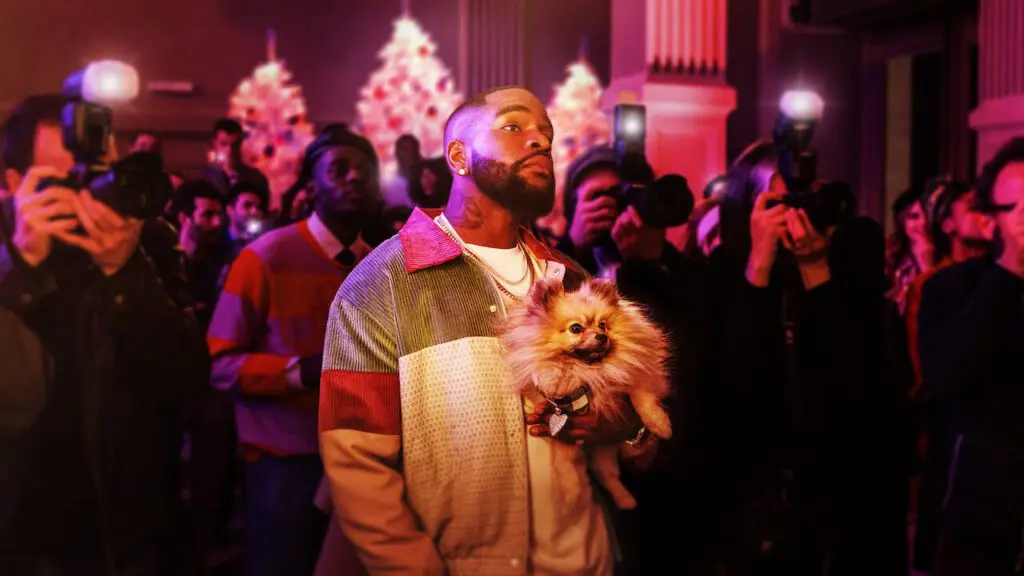Summary
The series feels stuck between foolish feel-good romance and meaningful discussion.
This review of Netflix’s Christmas Flow season 1 does not contain spoilers.
Ho-ho-ho. It’s that time of the year again where streaming services fill our stockings with as much Christmas-related content as possible to ease our glowing (or sinister) hearts. Step up French romantic comedy series Christmas Flow, which tries to be as motivated with activism as much as romance.
The story follows two characters, Marcus and Lila, who keep crossing paths, and the series dubs it as “hate at first sight.” It does not make sense because when they first meet each other, it isn’t immediately hate. They are flagrantly undressing each other with their eyes from their first moment together.
Marcus is a famous rapper, but his lyrics about women have caused a storm; heckled as a misogynist and promoting violence against women, Marcus must answer to claims in court and pay fines for his words. He must find a way to save his career and create a Christmas album, despite his insistence that his lyrics are art — it’s like a freedom of expression subplot to interest the viewers.
And then, on the flip side, you have tenacious journalist Lila. She works for a self-funded activist digital magazine with two friends to promote feminism and atrocious acts of misogyny. Of course, that’s where the “hate at first sight” speel comes from.
However, despite the interesting dynamic, Christmas Flow struggles to harbor the real issue. Lila never sincerely feels opposed to Marcus, despite the elephant in the room. It’s set up as a story where the activist has to make concessions, and the skewed man has to accept changes, but it never unravels in that manner aggressively enough to be effective.
Instead, we get a wasteful second chapter after an engaging pilot. The series is only three episodes long, so there’s no leg room to save itself from the pit. The series purposefully proposes two attractive leads who seem willing to drop their principles eventually while pretending to care about their self-worth. It doesn’t work. The writing and overall set-up let the audience down.
The writers should have been more forceful with the messages at hand rather than making Lila’s voyage for a better society a surfacing project. The series feels stuck between foolish feel-good romance and meaningful discussion; yet, you can have both, like Netflix film Love Hard achieved.
But at three episodes, we also have to wonder why this had to be a series in the first place. It doesn’t have the depth needed as a serial. A film would have sufficed, and maybe that dimension would have benefitted the writers. I wish I could articulate how I felt for Christmas Flow, but this is a mess, and I’m sure the cast had no idea how to deal with the script either.
But, to end on a positive note, there is a Christmas vibe, so if you are into the holidays, there’s at least that. May as well clutch at straws at this point.
What did you think of Netflix’s Christmas Flow season 1? Comment below.




